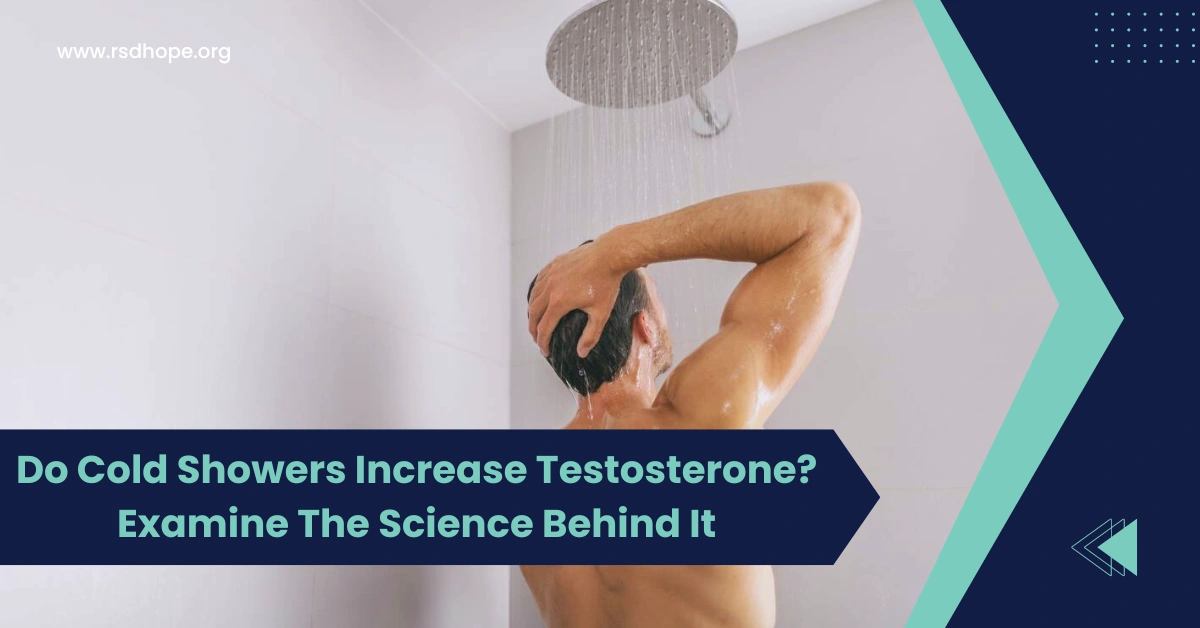Testosterone, a vital hormone in the body, plays a crucial role in male development, muscle growth, and overall well-being. Various factors, including diet, exercise, sleep, stress, and age, can influence testosterone levels.
In recent years, the potential benefits of cold showers for boosting testosterone have gained attention. In this article, we’ll explore the connection between cold showers and testosterone, the science behind it, and other natural methods to support healthy hormone levels.
Key Takeaways
- Cold showers may stimulate testosterone production by triggering a physiological response to cold exposure.
- Incorporating cold showers into a routine, along with a healthy lifestyle, can support overall hormone balance.
- While cold showers show promise, more research is needed to fully understand their impact on testosterone levels.
Factors That Affect Testosterone Levels
Before diving into the effects of cold showers on testosterone, it’s essential to understand the various factors that can influence hormone production. Diet, for example, plays a significant role in testosterone levels. A study published in the Journal of Clinical Endocrinology & Metabolism found that a diet high in healthy fats and low in processed foods can support optimal testosterone production.
Regular exercise, particularly resistance training, has also been shown to boost testosterone levels. Additionally, adequate sleep, stress management, and maintaining a healthy weight can all contribute to balanced hormone levels.
Also Read: Can Testosterone Make You Taller? Find Out The Truth!
Do Cold Showers Increase Testosterone?
The idea that cold showers can increase testosterone levels has gained popularity in recent years. While research on the direct link between cold showers and testosterone is limited, some studies suggest that exposure to cold water may stimulate testosterone production.
A study published in the journal Aging Male found that men who took cold showers had higher testosterone levels compared to those who took hot showers. However, more research is needed to fully understand the frequency and duration of cold showers needed to see a significant effect on hormone levels.
How Does Cold Water Affect Testosterone?
The potential link between cold water exposure and testosterone levels lies in the body’s physiological response to cold temperatures. When exposed to cold water, the body experiences a shock that triggers a cascade of hormonal reactions.
This response is thought to stimulate the production of testosterone and other hormones involved in the stress response. Additionally, cold showers may help improve circulation and overall cardiovascular health, which can indirectly support healthy hormone levels.
Other Health Benefits Of Cold Showers
Beyond their potential impact on testosterone, cold showers offer a range of health benefits. Cold water exposure has been shown to boost immune function, improve mood, and enhance skin health.
A study published in the journal PLoS One found that regular cold showers reduced the incidence of self-reported sick days by 29%. However, it’s important to consider individual health factors and consult a healthcare provider before making significant changes to your shower routine.
Natural Methods to Increase Testosterone
While cold showers may offer some benefits for testosterone levels, they should be viewed as part of a holistic approach to hormone health. Other natural methods to support testosterone production include:
- Engaging in regular resistance training exercises
- Maintaining a healthy diet rich in healthy fats, protein, and nutrients
- Prioritizing quality sleep and stress management techniques
- Maintaining a healthy body weight and avoiding excessive alcohol consumption
It’s crucial to consult a healthcare provider before making significant changes to your lifestyle or hormone levels, as individual needs and health factors can vary.
Conclusion
The connection between cold showers and testosterone levels is an intriguing area of research that warrants further exploration. While some studies suggest that cold water exposure may stimulate testosterone production, more evidence is needed to fully understand the impact of cold showers on hormone health.
By incorporating cold showers into a well-rounded lifestyle that prioritizes exercise, nutrition, sleep, and stress management, individuals can support overall hormone balance and well-being.
Read More: Does Ashwagandha Increase Testosterone? Examining The Facts!
FAQs
A: While there’s no definitive answer, some studies suggest that a cold shower of 5-10 minutes may be effective.
A: Yes, cold showers may offer benefits for overall hormone balance in both men and women.
A: Cold showers are generally safe for most people, but those with certain health conditions should consult a doctor first.
A: Incorporating cold showers a few times per week may be a good starting point, but individual needs can vary.
References:
Testosterone: What it is and how it affects your health – https://www.health.harvard.edu/staying-healthy/testosterone–what-it-does-and-doesnt-do

